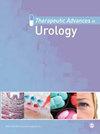Effect of surgical, medical, and behavioral weight loss on hormonal and sexual function in men: a contemporary narrative review
IF 2.6
4区 医学
Q2 UROLOGY & NEPHROLOGY
引用次数: 0
Abstract
This review explores the mechanisms and ramifications of weight loss achieved through lifestyle modifications, medical treatments, and bariatric surgery on testosterone levels and sexual health. Obesity significantly affects the hypothalamic–pituitary–gonadal axis in men, leading to diminished libido and erectile dysfunction. Here, we delve into the physiological disruptions caused by this imbalance and the intricate interplay of hormonal factors contributing to the dysregulation associated with obesity to comprehensively grasp the consequences of weight loss via diverse mechanisms. Lifestyle modifications involving dietary adjustments and regular exercise represent a widely employed and efficacious means of weight loss. While adherence demands discipline, our review scrutinizes various studies specifically investigating the impact of weight loss, attained through lifestyle modifications, on serum hormone levels and sexual function. Notably, several randomized controlled trials within the existing body of literature corroborate the enhancement of testosterone levels and sexual function consequent to weight loss through lifestyle modifications. The realm of medical management in addressing obesity is growing, notably propelled by the popularity of pharmacotherapy. Despite its prevalence, the current literature exploring the effects of weight loss medications on men remains insufficient. Nonetheless, we examine available studies on the medical management of obesity and its implications for sexual health, emphasizing pivotal avenues requiring further investigation. Bariatric surgery stands as an effective approach for individuals seeking substantial weight loss. Our review assesses existing literature that evaluates the impact of various surgical techniques on serum hormone levels, sexual function, and semen parameters. Despite certain limitations, the available body of evidence suggests enhancements in hormone levels and sexual function post-surgery, with semen parameters generally exhibiting minimal changes. This review critically evaluates the landscape of weight loss and its correlation with sexual function, while highlighting crucial areas necessitating future research endeavors.手术、药物和行为减肥对男性荷尔蒙和性功能的影响:当代叙述性综述
这篇综述探讨了通过改变生活方式、药物治疗和减肥手术实现减肥对睾酮水平和性健康的影响机制和后果。肥胖会严重影响男性的下丘脑-垂体-性腺轴,导致性欲减退和勃起功能障碍。在此,我们将深入探讨这种失衡造成的生理紊乱,以及导致肥胖相关失调的各种激素因素之间错综复杂的相互作用,从而通过不同的机制全面把握减肥的后果。调整饮食和定期锻炼的生活方式是一种广泛采用的有效减肥手段。虽然减肥需要坚持,但我们的综述仔细研究了通过调整生活方式实现减肥对血清激素水平和性功能影响的各种研究。值得注意的是,现有文献中的几项随机对照试验证实,通过改变生活方式减轻体重后,睾丸激素水平和性功能都得到了提高。在药物疗法的推动下,肥胖症的医疗管理领域正在不断扩大。尽管药物疗法很普遍,但目前探讨减肥药物对男性影响的文献仍然不足。尽管如此,我们还是对肥胖症的医学治疗及其对性健康的影响进行了研究,并强调了需要进一步调查的关键途径。减肥手术是一种有效的减肥方法。我们的综述评估了现有的文献,这些文献评估了各种手术技术对血清激素水平、性功能和精液参数的影响。尽管存在一定的局限性,但现有的证据表明,手术后激素水平和性功能会有所提高,而精液参数一般变化很小。本综述对减肥及其与性功能的相关性进行了批判性评估,同时强调了未来研究工作的关键领域。
本文章由计算机程序翻译,如有差异,请以英文原文为准。
求助全文
约1分钟内获得全文
求助全文
来源期刊

Therapeutic Advances in Urology
Medicine-Urology
CiteScore
3.70
自引率
0.00%
发文量
39
审稿时长
10 weeks
期刊介绍:
Therapeutic Advances in Urology delivers the highest quality peer-reviewed articles, reviews, and scholarly comment on pioneering efforts and innovative studies across all areas of urology.
The journal has a strong clinical and pharmacological focus and is aimed at clinicians and researchers in urology, providing a forum in print and online for publishing the highest quality articles in this area. The editors welcome articles of current interest across all areas of urology, including treatment of urological disorders, with a focus on emerging pharmacological therapies.
 求助内容:
求助内容: 应助结果提醒方式:
应助结果提醒方式:


